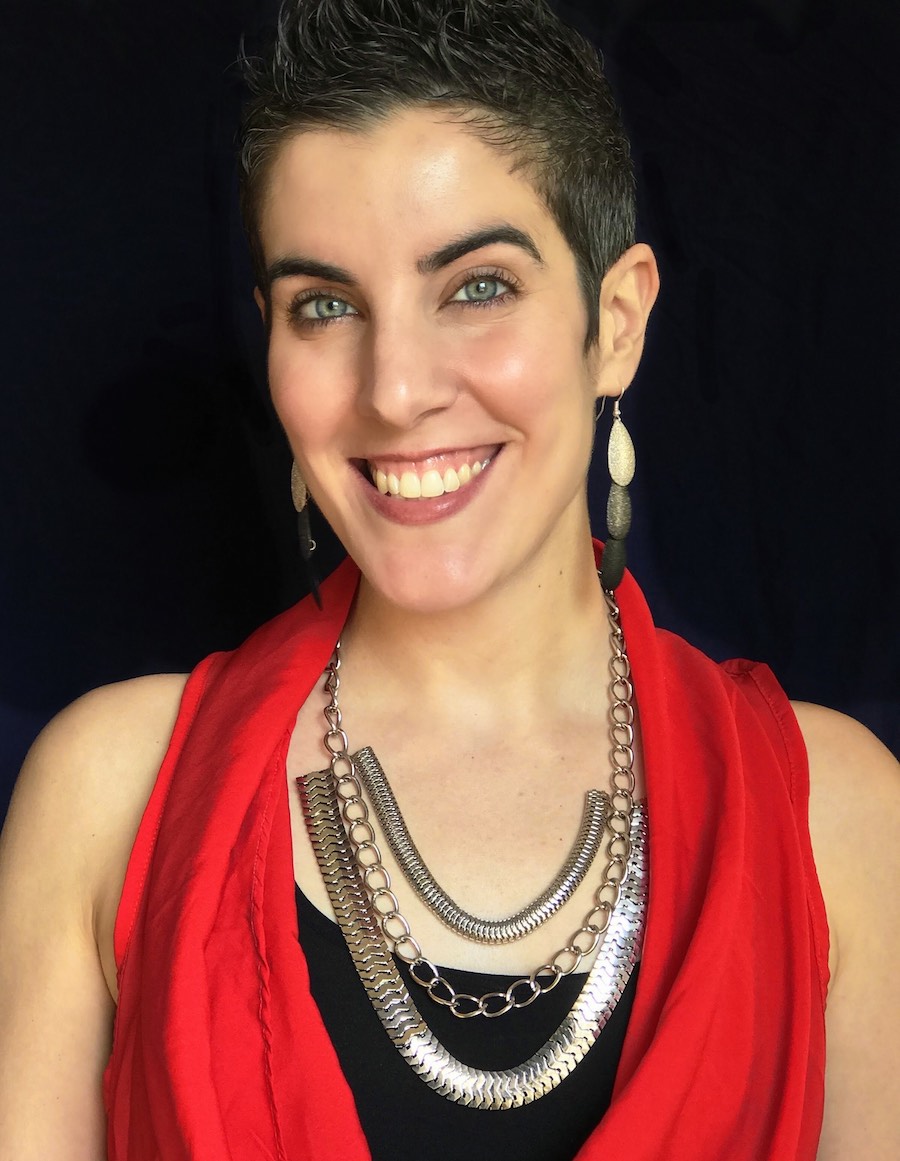By Alicia Ortiz
The majority of my romantic relationships have been with women. I’ve spent much time in lesbian and “women only” spaces as I’ve navigated the different aspects of my physical and emotional attractions over the years. I came to understand my sexual and romantic attraction to women at 18 years old, almost 20 years ago, which happened to be at the same time that I was developing a conscious awareness of gender-expansive identities. To me, it didn’t make sense to identify my sexuality based upon someone else’s gender, considering that gender is a construct and that everyone comes to an understanding of their own gender identities over time. Nevertheless, as I grew into adulthood and began dating more seriously, and my longterm relationships continued to be with women, I understood that representing myself as a queer cisgender woman who dates women was politically important to the social activism I was a part of. When I was asked to participate on a panel as the lesbian voice, I agreed to be presented that way. When a straight person wanted to understand more about my identities and there wasn’t enough time to elaborate on the fluidity of gender and sexuality, I would often simply say that I’m gay.
My partner and I, when we were in our early 20s, would joke that we weren’t “lesbians,” because we didn’t want to be associated with the stereotypes associated with that label—women “u-hauling” or moving in together after the first date; possessive controlling “drama” on the dance floor; and other problematic examples. On some level, the resistance to this label may have been a version of internalized homophobia. However, I’m aware that it was also a subtle way of asserting my attraction to people of all genders, and more importantly, it was a rejection of the rampant attitude I frequently witnessed within lesbian or “all women” spaces: that transgender women did not belong.
I’ve sat in social settings with cisgender lesbians as they swapped sex stories, competing over who was the “most gay,” i.e. who had engaged sexually with the fewest penises. I’ve heard cisgender lesbians vocally criticize other women’s masculine gender expression by saying things like, “If I wanted to date a boy, I’d go be straight.” There’s long been a pervasive policing of women’s choices to express their gender in the world, even by other women who claim to love them. In my view, commentary like this is a symptom of heterosexism and internalized sexism, not an intrinsically flawed characteristic of all lesbian-identified people. On the contrary, I have a deep admiration for many lesbians who have been on the forefront of intersectional feminist movements and liberation for all LGBTQ+ people.
I can understand the desire to separate women and our bodies from the clutches of patriarchy by literally distancing from men in general, and from bodies and expressions that are perceived to be exclusively male, masculine, or manly. However, this type of exclusionary thinking is inherently transphobic. It’s also inherently biphobic and, in some contexts, it can even be hostile towards women who have experienced sexual assault from cisgender men. Not to mention that it conflates patriarchy with maleness alone, which is fundamentally inaccurate, and ignores the reality that women regularly play an instrumental role in upholding this oppressive system. There’s much to dig into here, but that’s a subject for another day and another essay.
In short, women’s spaces are not a place to exclude each other based upon our experiences in the world, consensual or otherwise, nor upon our rich and vast identities. Trans women are women and they belong in women’s spaces just as much as anyone else. Women of all gender expressions deserve to be in women’s spaces no matter where they land on the spectrums of femininity or masculinity. Non-binary people navigating a gendered world who feel safer in women’s spaces deserve to be there. Women’s spaces provide a crucial opportunity to strengthen, support, and encourage one another within our interconnected fights for justice and equality in an unjust society. It is our responsibility to use this opportunity wisely.
Alicia (a.LEE.cee.a) Ortiz is an educator and musician living in Boston.

